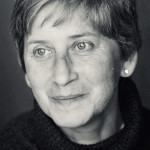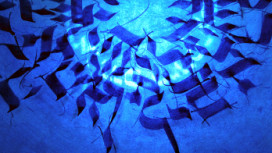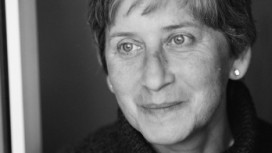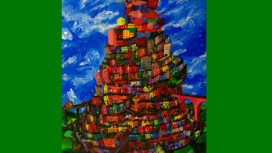Olga Sedakova
poet, translator
Ol’ga Aleksandrovna Sedakova was born in Moscow on December 26, 1949 to the family of a military engineer. She started school in Beijing, where her father was working at the time (1956-1957). Her family setting did not especially foster an interest in the humanities, and so from the very beginning teachers and friends played an extremely important role in her life. The first of these teachers was the pianist M. G. Erokhin, who introduced her not only to music, but also to art, poetry and philosophy; it was from him that she first heard the poets of the Silver Age, as well as Rilke, whose work was still unavailable in Russian.
In 1967 Ol’ga Sedakova began her studies at the Philological Faculty and received her PhD in Slavic Antiquities in 1973. She studied under the aegis of Sergei Averintsev and a number of other prominent philologists such as M. V. Panov, Iurii Lotman, N. I. Tolstoi. Her scholarly interests include the history of Russian and Old Slavonic languages, traditional culture and mythology, liturgical poetry, and the general hermeneutics of the poetic text. Sedakova quickly came to understand how indispensible it was to be able to read in other languages during the period of the “Iron Curtain,” and so she learned a number of key European languages. This would eventually help her earn her keep by writing surveys of new work in the humanities (from 1983-1990 she worked in a division of the Russian Academy of Sciences as a reviewer of foreign literary criticism), as well as to translate “for herself and her circle.” In the last several years a number of these translations, never intended for publication, have come out — translations of European poetry (English folk verse, T. S. Eliot, Ezra Pound, John Donne, Rainer Maria Rilke, Paul Celan, St. Francis of Assisi, Dante, Paul Claudel), drama, philosophy, theology (Paul Tillich et al.).
Sedakova started writing poetry at an early age and decided quite early on to “be a poet.” From the moment that her poetic world took on more definite contours (in terms of form, thematics and world view), it became clear that its path would radically diverge from state-sanctioned writing, as had the paths of many other “post-Brodsky” authors in Moscow, Leningrad and other cities: Victor Krivulin, Elena Shvarts, Leonid Gubanov (a personal friend of hers). This “second culture” of the 70s produced not only writers, but also artists, musicians, thinkers. It nurtured a vigorous artistic life that has enjoyed only limited recognition and study in the subsequent atmosphere of liberalization.
Almost none of Sedakova’s poetry or even scholarly work was published in the USSR before 1989; they were viewed as “esoteric,” “religious,” “bookish.” Nevertheless, the “second culture” had a readership, and quite a broad one, at that. Sedakova’s texts were distributed as handwritten copies, and some of them were published in foreign and émigré journals.
In 1986 her first book came out with the Paris-based YMCA Press. Soon after this her poetry and essays began to be translated into European languages, published in various journals and anthologies and to appear in book form.
Her first book to come out in her own country was Chinese Journey, in 1990. So far she has published 27 books of verse, prose, translations and scholarly research (in Russian, English, German, Hebrew and Danish; Italian and Albanian volumes are forthcoming).
Sedakova went abroad for the first time at the end of 1989. In the following years she took many trips to Europe and the United States, to take part in poetry festivals, symposia and conferences, as well as to teach and give lectures at universities all over the world.
Since 1991 she has taught in the Department of World Culture in the Philosophy Faculty at Moscow State University. And since 2004 she has been an active Fellow of the Institute of World Culture at the Library-Foundation for Russian-Language Literature Abroad.
She is a Candidate of Philological Sciences (awarded for her dissertation, “Funereal Rites of the East and South Slavs,” 1983—published in book form in 2004); author of The Dictionary of Difficult Words in Church Services: Church Slavic and Russian Paronyms (2005); Doctor of Theology honoris causa (2003, Minsk European Humanities University); Officier d’honneur d’Ordre des Arts et des Lettres de la République Française (2012).





















